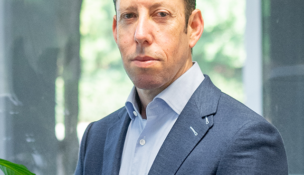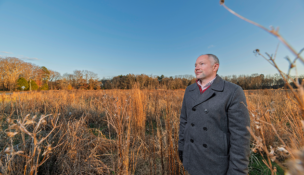Richmond baseball stadium deadlines made public
Construction would start Aug. 2024, end Dec. 2025
Kate Andrews //May 1, 2023//
Richmond baseball stadium deadlines made public
Construction would start Aug. 2024, end Dec. 2025
Kate Andrews //May 1, 2023//
Updated May 1, 6 p.m.
According to a now-public development agreement, design work for Richmond‘s new baseball stadium would begin this month and construction would start in August 2024 and finish by December 2025, if all goes to plan. The agreement also requires that the Richmond Flying Squirrels sign a stadium lease by July 1 in order for all “milestone completion dates” to remain on track.
As previously announced, the Squirrels Double-A baseball team would start the 2026 season in a new, 9,000-capacity stadium, a year past Major League Baseball‘s April 2025 deadline, if MLB accepts the delay. The city of Richmond and development team RVA Diamond Partners LLC, which includes Richmond-based Thalhimer Realty Partners, are awaiting MLB’s response to their request, and so far, the Flying Squirrels have not publicly commented on the matter.
According to Richmond Economic Development Director Leonard Sledge, who spoke at a Richmond City Council subcommittee meeting Monday, city officials will meet with Minor League Baseball officials this week to discuss stadium design and the waiver request that would allow the one-year delay.
Richmond City Council member Cynthia Newbille asked Richmond Chief Administrative Officer Lincoln Saunders if the city would meet with MiLB officials on Tuesday, but Saunders didn’t commit to a specific time.
“Soon, ma’am,” he said.
In April, Lou DiBella, president and managing partner of the Richmond Flying Squirrels, expressed concern over the delay of firm plans for the stadium and surrounding development.
“This is not about your Flying Squirrels wanting a new ballpark,” DiBella said in a statement April 11. “If there isn’t a stadium built that meets prescribed MLB guidelines, is suitable for professional baseball, and is worthy of the great City of Richmond, there will be no Opening Day 2026 in RVA.”
The nearly 400-page development agreement document was posted online ahead of the Monday meeting of Richmond City Council’s Organizational Development Standing Committee, which voted 5-0 to forward the matter to the full council. City Council is set to take up the matter and vote on it May 8.
Included in the agreement is a set of deadlines for the design of the stadium, demolition of the Sports Backers Stadium to make way for the new Squirrels ballpark, groundbreaking and completion of the new stadium:
- Schematic design: May-August 2023
- Design development: August-December 2023
- Construction documents: November 2023-June 2024
- General contractor design budgeting, bidding and materials procurement: August 2023
- Demolition of Sports Backers Stadium, mass grading, environmental remediation: February-April 2024
- Groundbreaking for new stadium: April 2024
- Ballpark construction: August 2024-December 2025
The stadium is expected to cost at least $90 million, and the city is anticipating $118 million in financing for the stadium’s construction, as well as $25 million more to build another stadium to replace the Sports Backers Stadium, in partnership with Virginia Commonwealth University, which will include the new stadium in its Athletic Village project adjacent to the Diamond District.
The first phase of the $2.44 billion project is anticipated to cost $627.6 million. In addition to the stadium, Phase 1 will include a hotel with at least 180 rooms from a higher-end brand, such as Marriott, Hilton, Hyatt, Kimpton, Le Meridien or Westin, according to the agreement.
The agreement sets $80 million as the minimum Community Development Authority (CDA) bond proceeds for the construction of the baseball stadium and public infrastructure, and the city will fund the first phase’s infrastructure with $23 million in Capital Improvement Plan General Obligation bonds, according to a PowerPoint presentation made available before the Monday committee meeting.
The city also will add additional land parcels to the Incremental Financing Area, beyond the 67-acre Diamond District, to help fund the project, and $10 million in property sales will help reduce the stadium bond debt. The city agrees to pay incremental tax revenue for nine fiscal years, including a hotel use surcharge of 2% within the district and a 0.25% consumer purchase surcharge on all purchases within the CDA district.
City Council also is expected to vote May 8 to convey nearly 61 acres of the 67-acre Diamond District footprint to the Richmond Economic Development Authority, and that land — which does not include the new stadium’s property, which will remain city-owned — will be sold to RVA Diamond Partners for $68.3 million, including $16 million for the first phase, according to a fiscal and economic impact study produced for the city by Davenport & Co. The city’s Planning Commission voted unanimously to send that ordinance to the full Richmond City Council earlier Monday.
RVA Diamond Partners is still expected to pay $20 million as part of the Phase 1 financing, as previously announced. The joint venture also includes Washington, D.C.-based Republic Properties Corp.; Chicago-based Loop Capital Holdings LLC; and San Diego venue developer JMI Sports.
The project will include 2,800 residential units, 935,000 square feet of office space, 195,000 square feet of retail and community space, and two hotels.
The city also must rezone the 67-acre Diamond District and create the Stadium Signage Overlay District, create a Community Development Authority and design standards, and reach lease agreements with the Flying Squirrels and Virginia Commonwealth University. The developer must also submit the subdivision of the land to Richmond City Council to create the new Diamond District.
P


















